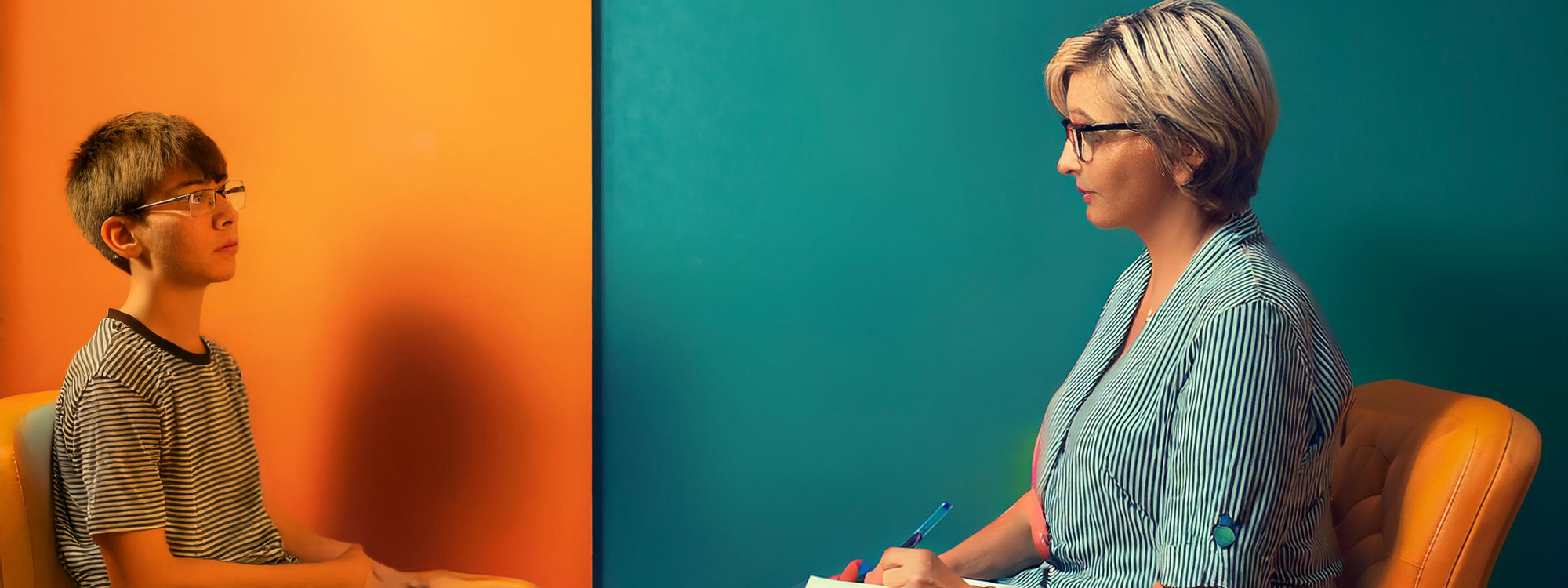| |
Too many people still refuse to acknowledge the difference between pedophile and child molester. They judge people for feelings they didn't choose. The topic of pedophilia is a very touchy one, one that makes a lot of people uncomfortable. We constantly hear on the news about 'convicted pedophiles', 'pedophile priests', and a variety of terrifying stories of child sexual abuse. The statistics tell us that up to one in five girls and one in twenty boys will be sexually abused before they turn eighteen — the numbers are quite staggering. Child sexual abuse is definitely a terrible thing, and everyone agrees that we must do everything we can as a society to get rid of this scourge. However, people often disagree as to what the best approach to achieve that goal is.
It is — however — really hard to have a rational discussion about such a complicated and uncomfortable topic. But that is exactly what we need to do as a society: have a rational conversation about it, and not one that is driven by gut feeling, fear and knee-jerk reactions; but instead is based on reason and hard facts. The media has been irresponsibly reporting on such cases of child sexual abuse for decades by interchangeably using the terms 'pedophile' and 'child molester' or 'child sex offender', creating in the mind of the audience the perception that they are all one and the same. The reality is a little different though.
Let's start by looking at the definition of pedophilia that you'll find most commonly in a dictionary:
pedophilia: (n) the condition of being sexually attracted to children
Of course, there is a much broader definition within professional publications such as the Diagnostic and Statistical Manual of Mental Disorders (DSM) by the American Psychiatry Association (APA), or the International Classification of Diseases (ICD) by the World Health Organization (WHO), as well as a differentiation in the case of the former between pedophilic sexual ‘interest' and pedophilic disorder, but those will be topics for other posts. There are two aspects that the simpler dictionary definition doesn't really reflect though. First, pedophilia is defined as sexual attraction to prepubescent children, that is, children that have not yet reached puberty. There are other terms to refer to people who are sexually attracted to either pubescent or postpubescent children, which I will not elaborate on today. The second aspect is that for someone to be considered a pedophile, they have to be either exclusively or predominantly attracted to prepubescent children —so while some attraction to adults may be present, it will generally be much weaker than their attraction to children. There are many more people that can have some level of sexual interest in prepubescent children, finding themselves suddenly attracted to the odd child, but otherwise archive those feelings and never think about them much. Just as your average heterosexual man that finds himself unexpectedly attracted to an attractive man would not generally be considered homosexual, those people would generally not be considered pedophiles.
In summary, a pedophile is characterized for feelings of sexual attraction to prepubescent children (I'll just say children from here on out). This attraction is usually accompanied by fantasies of having sex with children or children having sex in general (it could be masturbating, experimenting with peers...) but pedophilia does not indicate that a pedophile must act on his attraction with an actual child during the course of his or her life. What pedophilia certainly is not, is the actual act of having sex with a child (sexual abuse or child molestation). Thus, pedophilia and child molestation are not the same thing.
Do pedophiles molest children? Certainly some do. We have plenty of evidence of that.
Do all pedophiles molest children? That question is trickier to respond to. Do we know how many pedophiles are out there? The answer is no. There is very little research done on the topic of pedophilia, mostly because it is a topic with such a negative stigma that most researchers of human sexuality don't want to associate themselves with it. Those who do study it struggle to get funding and to find pedophiles who are willing to participate in their studies. Some conservative estimates suggest that 1–2% of the entire adult male population are actually pedophiles; other estimates indicate that up to 20% of adult men are capable —to some degree —of being sexually aroused by children. In any case, even with the conservative estimates we are talking about millions upon millions of pedophiles walking among us every day. It seems logical to think that not all of them molest children. Otherwise the statistics of child sexual abuse would be much higher than they are.
Are all child molesters pedophiles? Here we have more information, and contrary to popular belief we can say with certainty that no, not all child molesters are pedophiles. This sounds counter intuitive, I know. But there are actual scientific studies that prove this point. What percentage of child molesters are pedophiles is more up to debate, there being different studies that suggest different numbers, but in the "best case scenario" (or is it the worst case?) a minimum of 60% of child molesters are not actually pedophiles. These are what's called 'situational offenders', a well understood and commonly used term in criminology. It means they commit their offense not because they are sexually attracted to their victims —or to children in general —but for a variety of other reasons, which I will not cover in this post.
So, we know that not all pedophiles are molesters, that not all molesters are pedophiles, but that some pedophiles do actually molest. It can sound a little bit confusing, but if you think about things rationally it makes certain sense. Being a pedophile doesn't automatically make one an evil person that only cares about his own desires and doesn't care whether he inflicts pain on others in the process of fulfilling them. So those pedophiles who refrain from acting on their attractions because they know their actions could cause harm to children are what we call non-offending pedophiles.
It is non-offending pedophiles that I want to talk about here. I have been thinking of starting a blog to talk about the topics of human sexuality, sexual orientation and identity, pedophilia, mental disorders, shame, stigma, child sexual abuse and other related topics for quite some time. The internet has been ablaze since Salon.com published an article about a non-offending pedophile called Todd Nickerson titled "I'm a pedophile, but not a monster", and through the comments on that and his follow-up article, I have come to see that a while a lot of people are ready to start having that rational discussion I was talking about earlier, unfortunately there are way too many people who still refuse to acknowledge the difference between pedophile and child molester and make a conscious decision to judge people based on feelings they didn't choose and can't change rather than based on their actions —or lack thereof, in this particular case.
Why would you be interested in reading what I have to say about these controversial topics? Who am I? I am a non-offending pedophile. I am sexually attracted to prepubescent boys; I have been since I was a boy myself, and that was a long time ago. I have never touched a child sexually, I am committed never to and very much confident that I never will. I am also a member of a community called Virtuous Pedophiles where pedophiles who are committed to never acting on our attractions are free to finally talk about something they have likely never been able to share with anyone in real life out of fear, and receive support from others who won't judge them for their feelings and who can relate to their struggles. That is something very powerful, and I am proud to be a member of such a community.
About the author: Ender was a moderator of the VirPed forum for some years, and also the founder of MAP Support Club. He has now retired from ‘maptivism’, having chosen to focus on family and the rest of a viable life. | |






 attraction is not action
attraction is not action the chasm between celibate pedophiles and acceptance
the chasm between celibate pedophiles and acceptance counting the distressed cp victims
counting the distressed cp victims